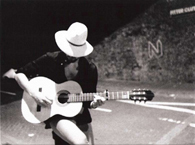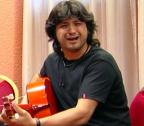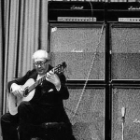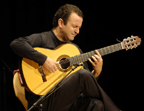Welcome to one of the most active flamenco sites on the Internet. Guests can read most posts but if you want to participate click here to register.
This site is dedicated to the memory of Paco de Lucía, Ron Mitchell, Guy Williams, Linda Elvira, Philip John Lee, Craig Eros, Ben Woods, David Serva and Tom Blackshear who went ahead of us.
We receive 12,200 visitors a month from 200 countries and 1.7 million page impressions a year. To advertise on this site please contact us.
|

|
|
Falseta vs Llamada
|
You are logged in as Guest
|
|
Users viewing this topic: none
|
|
Login  | |
|

   
devilhand
Posts: 1598
Joined: Oct. 15 2019

|
 RE: Falseta vs Llamada (in reply to orsonw) RE: Falseta vs Llamada (in reply to orsonw)
|
|
|
quote:
Also try this for a beginning introduction to accompaniment (baile), it explains the structure of an alegrias with audio and tab examples.
Like everything else in flamenco there are variations but if you start by learning this you'll have some reference.
https://ravennaflamenco.com/tab/alegria-accompaniment/
Thnx for the link. Is it me or is it difficult distinguish temple ,llamada, falseta, copla from each other in Alegria Accompaniment? The player knows where he is in compas and what he plays when. As a listener, I can't tell the difference.
quote:
Well, I sure am glad you didn't run into it 3 weeks ago when I wrote a full outline of an Alegrias choreography for you, which featured the word "llamada" 4 times...
I'm also glad that you didn't take those all but 5 minutes it would have taken to find an answer to this question on Google, Youtube, or even directly on this forum by using the search function...
As a beginner, I couldn't do anything with the your post in Structure of Palo thread. Here I asked what llamada is and how it differs from other sections of palo, in particular from falseta.
I could have used the search function but there's no audio or youtube explanation, mostly a definition of llamada or other sections of palo with weird names. Explaining it in words doesn't help me. Some youtube videos in older threads are not available anymore. That's why I asked for audio or youtube.
_____________________________
Say No to Fuera de Compás!!!
|
|
|
|
REPORT THIS POST AS INAPPROPRIATE |
Date Dec. 3 2019 13:14:46
 |
|

   
Ricardo
Posts: 14799
Joined: Dec. 14 2004
From: Washington DC

|
 RE: Falseta vs Llamada (in reply to mark indigo) RE: Falseta vs Llamada (in reply to mark indigo)
|
|
|
quote:
ORIGINAL: mark indigo
quote:
My conclusion is llamada is any short phrase that is played just before the singer starts singing.
It's not "any" sort of phrase, they are actually quite specific phrases, and any "improvisation" referred to by Worms is only in the details or ornaments of the phrase, or choice of which version of the specific phrase. They let the singer know that the guitar falseta has concluded and it's time for them to sing. The singer will recognise those specific phrases and take their cue.
In the baile, the dancers llamada is doing the same thing, calling the singer to sing after the entrada, falseta or escobilla, and the guitar's accompaniment to that is recognised (and can be used the same way in cante accompaniment or solo) as much as the dancers movements and footwork.
Piwin post was great nothing to add except yes temple and ayeo are interchangeable terms, the other most often used is “salida”.
About improvise llamada.... I get what he means. I always improvise the llamada for dance in the sense that I can make up accents and rasgueado and my own rueda of chords however I want so long as we rematar together. The better I know the choreography the more adventurous I may get with my version of the llamada. The less I know the dancer the more conservative I will be with my chords and accents. I agree “any sort of phrase” is not correct, it’s always a rhythmic statement, even if it is not only strumming techniques used. Falsetas are typically set in stone, so that’s what Worms probably meant. I must admit that those of us who don’t like editing our nice perfect falsetas to better fit a choreography more often opt to improvise or at least compose on the fly, a falseta that fits the dance structure perfectly. I call those “BS program falsetas” lol
_____________________________
CD's and transcriptions available here:
www.ricardomarlow.com
|
|
|
|
REPORT THIS POST AS INAPPROPRIATE |
Date Dec. 6 2019 13:59:50
 |
|
 New Messages New Messages |
 No New Messages No New Messages |
 Hot Topic w/ New Messages Hot Topic w/ New Messages |
 Hot Topic w/o New Messages Hot Topic w/o New Messages |
 Locked w/ New Messages Locked w/ New Messages |
 Locked w/o New Messages Locked w/o New Messages |
|
 Post New Thread
Post New Thread
 Reply to Message
Reply to Message
 Post New Poll
Post New Poll
 Submit Vote
Submit Vote
 Delete My Own Post
Delete My Own Post
 Delete My Own Thread
Delete My Own Thread
 Rate Posts
Rate Posts
|
|
|
Forum Software powered by ASP Playground Advanced Edition 2.0.5
Copyright © 2000 - 2003 ASPPlayground.NET |
9.472656E-02 secs.
|


 Printable Version
Printable Version










 New Messages
New Messages No New Messages
No New Messages Hot Topic w/ New Messages
Hot Topic w/ New Messages Hot Topic w/o New Messages
Hot Topic w/o New Messages Locked w/ New Messages
Locked w/ New Messages Locked w/o New Messages
Locked w/o New Messages Post New Thread
Post New Thread